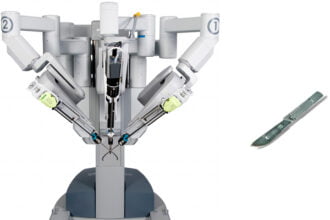First in a four part series describing a unique digital marketing strategy for medical device companies that has been proven to drive ROI for both device companies and their clients.
First in a four part series describing a unique digital marketing strategy for medical device companies that has been proven to drive ROI for both device companies and their clients.
Many medical device companies with innovative technologies are eager to reach out to the end consumers: patients. If only they could reach and educate these patients, surely those patients would go to their [name your specialty] doctor and demand they use the company’s technology given its clear superiority. While this may be quite true, there remain some significant obstacles with classic direct-to-consumer (DTC) marketing & advertising initiatives in the healthcare realm:
- Cost – No two ways about it, DTC advertising in healthcare is expensive. With plenty of significantly larger (i.e., wealthier) pharma/biotech companies willing to pay top $, the costs of DTC often seem out of reach for smaller device companies.
- Targeting: You want to target patients with a specific condition, but using many mass media alternatives, the best you might do is some demographic (age, gender) or geographic targeting. Without good condition-focused targeting, the costs of DTC are even worse as you pay for countless wasted impressions.
- Return on Investment (ROI) Tracking: Given the high costs, management is certainly going to want some metric on the ‘return’ of your DTC program. Impressions or visitors to your website may not be enough…they will want to see some $ impact on revenue or profit. If you can’t provide it, they likely won’t fund it.
For these and other reasons, many medical device companies limit their DTC efforts to patient-focused websites (usually with find-a-physician locators) and concentrate on classic direct-to-physician marketing. More progressive companies may leverage their existing installed base of customers by providing practice enhancement tools (e.g. template solutions like pre-designed print ads, patient brochures, web content, videos, TV ads, in-office posters, etc.) with the hope that the customers will use them to promote their technology on to patients.
Digital marketing provides a new approach
In this blog series, I am going to describe a unique, digital marketing strategy that can address most of these issues and provides a host of high-level benefits to (a certain segment of) device companies. This strategy is NOT just some theoretical musing, but rather has been validated with a number of leading medical device companies at hundreds of their physician and hospital clients. The benefits include:
- Clear ROI (as measured by appointments, procedures & revenue ($))
- Increased disposable revenue
- Improved client perception (become a revenue generator vs. a cost center)
- Enhanced connection with and loyalty from clients
- Partially or fully funded by clients!
The remainder of this blog series will focus on what type of company/technology is appropriate for this DTC digital marketing strategy, the specific details of the strategy and the types of results we have seen it produce.








